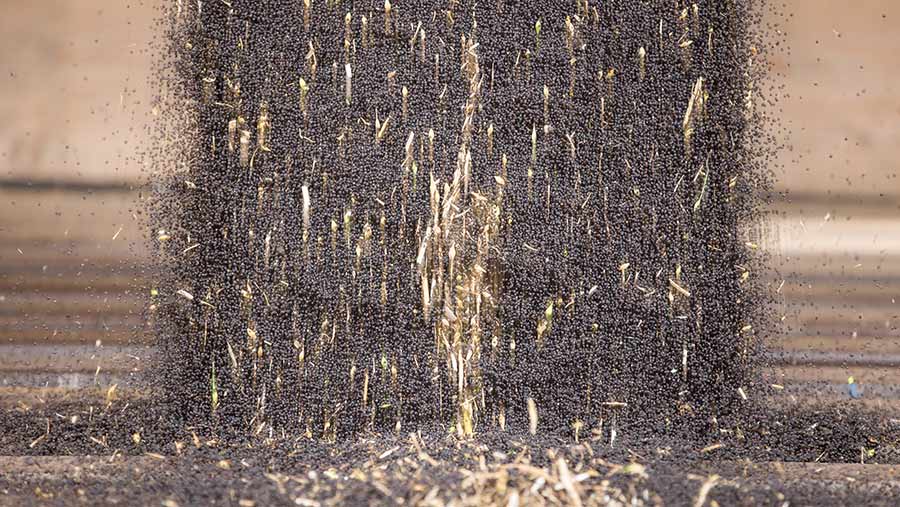Sharp rise in oilseed rape price as sterling weakens
 © Tim Scrivener
© Tim Scrivener Oilseed rape prices have jumped by almost £6/t on the week and are now at their highest level since the beginning of March.
The UK average farmgate price climbed from £305.85/t to £311.23/t in the week ending 19 May.
The rising price is mostly linked to the weakening of sterling and an increase in the European price, said United Oilseeds trading manager Owen Cligg.
See also: How OSR establishment risk-share schemes compare
It currently takes around 89p to buy €1, almost a penny more than last week and the weakest level the sterling has been at for around eight weeks.
Traders estimate that for every extra penny the pound weakens, domestic rapeseed prices increase by around £3/t.
Future global supply uncertain
The dry weather was also causing concern about the size of this season’s harvest in the UK and Europe, but significant coronavirus-linked uncertainty about future global supply and demand is holding back markets from rising further.
Some traders are saying that fuel consumption may even go up as economies emerge from lockdown, as commuters prefer to isolate in their car instead of taking public transport, which would support biodiesel demand, said Mr Cligg.
“We are all waiting for a better day, but whether that comes or not remains to be seen,” he said, noting that many farmers were following the market closely but holding back from trading in the expectation that prices may rise.
If average yields dip below 3t/ha, the UK will struggle to produce a 1m tonne crop, compared with a normal consumption rate of about 2m tonnes a year, leaving it searching for a much larger amount of imported crop than normal.
However, rapemeal prices continued to fall back from their recent spike in demand, trading at a delivered price of £224/t on a seasonal fall in demand as cattle turnout continued.
This was £1/t down on the week and £61/t down from its peak five weeks ago, when it briefly traded as high as £285/t.
